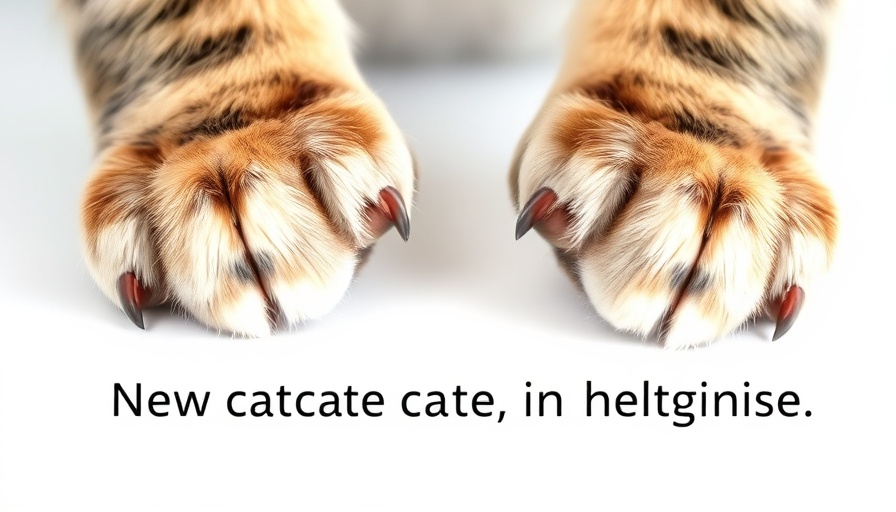
Cats' New Legal Protections: A Pioneering Shift for Pet Care
In a significant legislative shift, Virginia has become one of the latest states to prohibit the controversial practice of declawing cats. Effective July 1, 2024, veterinarians are restricted from surgically declawing cats unless under specific therapeutic circumstances. This critical step signifies a progressive approach to feline welfare, igniting conversations across pet ownership communities, including those predominantly involved with dogs.
The Realities of Declawing: Why It’s a Problem
Declawing is often misperceived as a harmless cosmetic procedure akin to trimming nails. However, the reality is starkly different. Declawing, technically termed “de-toeing,” involves amputating the last bone of each toe. Complications can include chronic pain, nerve damage, and behavioral changes that elevate stress and anxiety in cats. These procedures not only take a toll on the physical health of the animal but also lead to emotional distress that can manifest in aggression or litter box avoidance.
Historic Context: A Glacial Shift in U.S. Animal Welfare Standards
Historically, the practice of declawing cats has persisted in the United States while being banned in various countries. It was first outlawed in New York in 2019, followed by Maryland in 2022 and similar legislative efforts currently underway in Illinois. As states like Virginia make strides in animal rights, they set a precedent that could inspire further reforms nationwide.
How This Affects Dog Owners: A Community Perspective
While primarily addressing feline issues, this law also impacts dog owners. An interconnected community caring for animals means that insights, practices, and advocacy for one species can benefit another. With cats living harmoniously among dog families, understanding and adjusting to the necessities of cat welfare encourages well-rounded pet care approaches. Dog owners can also become champions for welfare standards, understanding the importance of mutual respect within the animal community.
Turning Focus Towards Prevention: Alternatives to Declawing
Pet owners, especially dog enthusiasts interacting with cats, should explore alternative solutions for managing cat claws. Regular nail trimming, the use of scratching posts, and cat-friendly deterrents can prevent the necessity of declawing while ensuring a peaceful coexistence among pets. Training techniques utilizing positive reinforcement can also help cats embrace appropriate behaviors and interaction, preserving both feline well-being and household harmony.
Cultural Misconceptions: Rethinking Our Approach to Pet Care
Many pet owners may unwittingly perpetuate the myth that declawing is a responsible and harmless action. However, listening to the experiences shared by veterinary professionals and animal advocates reveals the hidden risks and ethical implications. Challenging these misconceptions not only aids in improving treatment for cats but fosters a deeper understanding of the emotional and neurological frameworks of all pets.
Community Engagement: A Call to Action for Animal Advocates
As animal advocates, it’s crucial to connect with local lawmakers, contribute to discussions surrounding best practices in pet care, and volunteer to educate fellow pet owners on the significance of humane treatment for all animals. Being proactive in community dialogues not only benefits individuals but also uplifts the collective standard of pet care. Advocates can inspire growth and change by sharing knowledge and best practices that resonate across species.
An Inspiring Vision for the Future: A World Without Declawing
The future of pet care is undoubtedly brighter with consistent advocacy for animal rights. As more areas recognize the importance of humane treatment, we can foresee a broader abolition of practices that harm animals in the name of convenience. This transition toward ethical standards emphasizes the need for compassion, understanding, and proactive approaches to pet care, promoting healthier, happier lives for both our feline and canine friends.
In light of the recent developments regarding animal health, all pet owners—especially dog owners—are encouraged to stay informed, engage with community initiatives, and advocate for the well-being of animals. As these laws take effect, it's an exciting time for pet care reform that benefits everyone involved!
 Add Row
Add Row  Add
Add 




Write A Comment